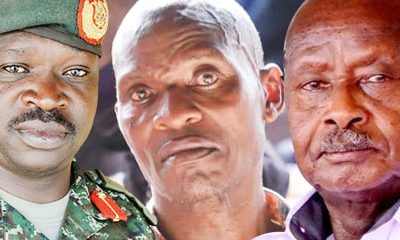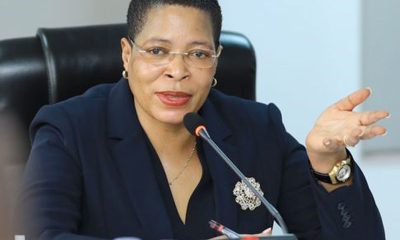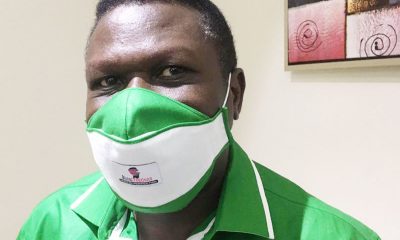Presidential candidate Robert Kyagulanyi aka Bobi Wine has been hosting large rallies across the country. Tens of thousands of his supporters gather in close contact, vast numbers without masks, in total disregard for the COVID19 SOPs. In one video, which I have watched from the beginning to the end, he tells his supporters: “those with masks should wear them and those without masks it is okay”.
The world is engulfed in this COVID19 pandemic. As I write this article, it has infected over 75m people and killed 1.7m. Over 20m people are hospitalized with COVID19 worldwide, 107,000 in critical condition. Hospitals even in the richest countries are overwhelmed, without enough beds, medical staff, ventilators and other facilities. In poor countries, which seem to have escaped the worst of this pandemic, the situation is alarming.
In Uganda, even with our low testing, nearly 30,000 people have been infected, 228 others killed. These numbers are low by global and African standards. But our medical facilities and staff are already overwhelmed as we have very few Intensive Care Unit (ICU) beds and medical staff to cope with the scale and scope of the problem. We are in a crisis where we need leaders to set an example.
We have a government and a president, Yoweri Museveni that have been in power for 35 years. Bobi Wine and his acolytes claim, and in many cases correctly so, that this government (which they derogatorily call a “regime”) is characterized by massive corruption and gross incompetence; that it is dominated by selfish and greedy individuals who are in power to line their own pockets rather than serve the common good. They have been calling for a change in leadership in order to redirect the country onto the paths of selfless public service, underwritten by values of honesty, frugality, integrity and a strong commitment to the common good.
Museveni and his confederates are campaigning on the “no- change” platform i.e. to maintain the status quo or the situation as it is. It follows that the opposition and most specifically Bobi Wine and his NUP, should demonstrate that they are the pillars of a new Uganda, saviors standing on the highest hill of moral virtue. They need to demonstrate to us that they seek a real change in the conduct of public affairs by placing the vital interests of this country and its people above their individual and collective ambitions.
Yet during this campaign, Bobi Wine has demonstrated that he has one and only one value that he cherishes above all else – getting into power, whatever the cost. From the perspective of realpolitik, that is fine. But from the perspective of a change agent he claims to be, one who wants to end the greed and selfishness that has characterized the Museveni administration, I vehemently disagree with him. Bobi Wine has exposed himself as just another selfish, power-hungry politician seeking power above all else.
Many families have lost loved ones in this pandemic, I having lost four in one month of November. Others have their loved ones in ICUs, in HDUs [High Dependency Unit] or have gone through the agony and anxiety of tending to the sick. If the virus spreads, this country has no capacity to manage its effects. It will simply decimate our people. It is therefore incumbent on our leaders to take social distancing, the wearing of masks, avoidance of large gatherings and constantly sanitizing not just as a strategic imperative, but most critically, as an existential necessity.
President Museveni has tried his best to adhere to the SOPs, to his great political disadvantage – since we know rallies are vital in campaigns. Other presidential candidates should also lead by such an example. But Bobi Wine is leading his supporters and admirers to mass suicide. Not since the mass suicide of “Pastor” Kibwetere’s cult members in 2000 has Uganda witnessed the recklessness and irresponsibility that Bobi Wine has exhibited in this campaign to the applause of his intellectual surrogates and admirers.
In my many unhappy encounters with some of my intellectual friends who are sympathetic to Bobi Wine’s cause, I have been disappointed. Some of these are persons who have preached to me the virtues of a values-driven leadership. Yet the justification for Bobi Wine’s irresponsibility is that Museveni should not have called an election in the midst of a pandemic, that NRM candidates are violating the SOPs, that the government has blocked their candidate from accessing to most radio stations across the country.
Let us unpacked these arguments, all of which are legitimate but fail to appreciate the moral pedestal of Bobi Wine’s campaign: do these impediments justify a person seeking the presidency to drive his supporters, and through them the entire country, to mass suicide? Do some of our elites see the risk these rallies are posing? Does Bobi Wine want to inherit a country of millions of sick and dying citizens? Is this the price we must pay for change from corruption and incompetence, the price of mass death to a pandemic?
I find it strange that Bobi Wine and his acolytes can justify their wanton irresponsibility by referring to the behavior of NRM candidates. If NRM candidates are violating the SOPs without police doing anything, should NUP candidates do similar? Is it not the role of NUP and other opposition politicians to hammer home how selfish NRM is, how its leaders do not care about the public good? How does behaving like NRM make NUP and others any different?
The claim that Museveni should have not held an election falls flat on its face. At least we have witnessed another country, the USA, go through one. In that election one candidate, President Donald Trump, behaved like Bobi Wine and led his supporters and country to tragedy. Another candidate, Joe Biden, behaved well, avoided rallies, upheld the highest standards of political and moral responsibility – and won. I applaud Biden and condemn Trump in the same way I wish Bobi Wine bad luck in this election.
When in power, Bobi Wine and his acolytes will justify their own corruption and incompetence on grounds that Museveni and his NRM confederates were corrupt and incompetent too. They will justify clump down on our freedoms and liberties on grounds that Museveni did similar. They will justify nepotism, favoratism, anarchism, chaos, etc. on similar grounds. One can tell a tree that will deliver good fruit from its seedling and we have seen who Bobi Wine is.
Here is the real crisis of Uganda’s politics: we don’t have real leaders seeking a change from our current dysfunctions. We have a cabal of opportunistic politicians seeking power in order to inherit the privileges of their predecessors. We do not have an intellectual class or civil society that stands above partisan rancor that seeks to hold all sides to account and without fear or favor. In fact, since NRM is a status quo party campaign on a no change platform, we need to scrutinize the opposition politicians who champion change more.
This country is filled with partisans who have no interest to change the policies and practices of the current government. we only have self-interest individuals – materially or emotionally or both – seeking to remove Museveni and his confederates so that they too can have a chance at the feeding trough. Otherwise no sane intellectual person can defend Bobi Wine’s mass suicide rallies under any explanation.
The writer, Andrew Mwenda is a veteran investigative journalist,
Political analyst and founder/owner of The Independent News Magazine.





 NATIONAL2 months ago
NATIONAL2 months ago
 NATIONAL1 month ago
NATIONAL1 month ago
 NATIONAL3 weeks ago
NATIONAL3 weeks ago
 NATIONAL2 months ago
NATIONAL2 months ago
 NATIONAL4 weeks ago
NATIONAL4 weeks ago
 CRIME2 months ago
CRIME2 months ago
 NATIONAL1 month ago
NATIONAL1 month ago
 NATIONAL2 months ago
NATIONAL2 months ago




































Leave a Reply